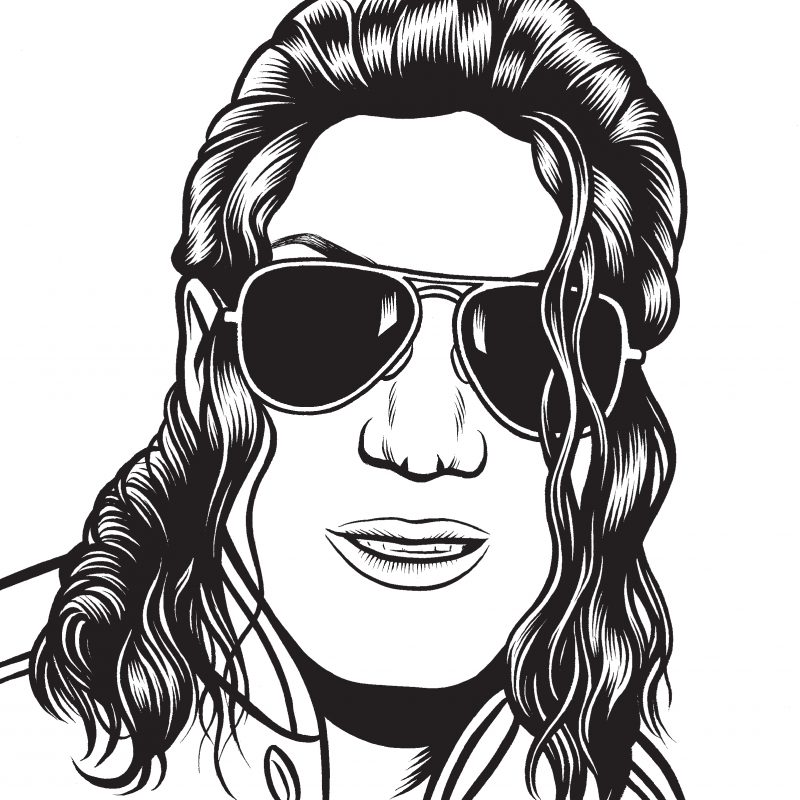I am on YouTube and I’m watching a powder-faced man in a red, multi-zippered leather jacket with shoulder accents and a fedora hat swivel his hips and dip his shoulders to the glassy bass staccato of “Beat It.” There’s more baritone in his voice than I’m used to—a slightly heavier timbre that occasionally caps out in the backbeats. But the footwork is spot-on. It is controlled, clear. This isn’t just any Jacko wannabe. Next I’m watching his “Thriller” cover. He’s doing the moonwalk. He slides. He dime-stops. His shirt comes untucked. There’s white tape on three of his fingers. A top comment on the video calls him “damn near perfect.” I suppose, considering that Michael Jackson was arguably the most perfect pop artist of all time, “damn near perfect” is a fitting label for this guy, Navi, who has performed as Jackson for twenty-five years and employs the self-styled title of “The World’s Number One Michael Jackson Impersonator.”
Navi’s obsession with the King of Pop began at the age of seven, when his family moved from Trinidad to London—right around the time that “Don’t Stop ’Til You Get Enough” broke into the charts. He started playing high-school shows and counting coins on street corners, but quickly moved into clubs and joined with variety acts where he was commended not only for his physical likeness to Michael but for his mimetic dancing ability. At age fifteen, he was made the opening act for the eternal doo-wop and R&B group the Drifters. Soon after that began his steady rise: MTV commercials, Virgin Megastore advertisements, dance bits on daytime TV, an invitation to appear on the Oprah Winfrey Show, sold-out arenas. Twice he even performed for Michael Jackson himself. He received a standing ovation from the King of Pop.
Navi happily rearranged his schedule during a fully booked tour so that he could do this interview. I called him on a Thursday afternoon, and as I waited for him to answer, I realized I had no clue whether I would be speaking to him in character—as Michael—or as himself. He immediately asked if I could hang up and call him back in ten minutes because he was looking for some shoes so that he could go on a walk as we chatted. Ten minutes later, I called back. “Hello, this is Navi,” he answered.
—Noah Pisner
I. HOW BAD
THE BELIEVER: What’s it like to imitate a dead man? How’s it different from when he was alive?
NAVI: Before June 25, 2009, I was a Michael Jackson impersonator. I still am, but post-June 25, it exploded. I became this substitute for people, a comfort for Jackson fans because the world wasn’t...
You have reached your article limit
Sign up for a digital subscription and continue reading all new issues, plus our entire archives, for just $1.50/month.
Already a subscriber? Sign in





